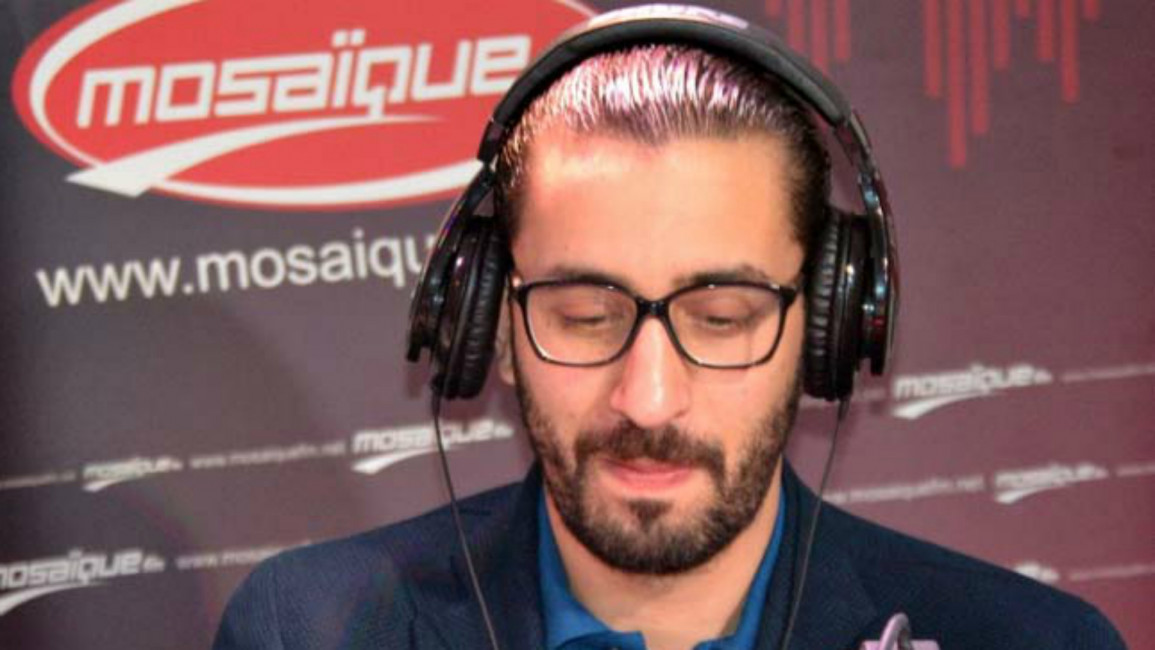Tunisian prosecutors bring forward trial of popular satirist
The trial of a popular Tunisian comedian and a television host charged with "offending" the country's president, Beji Caid Essebsi.
Satirist Migalo, whose real name is Wassim Hrissi, and television host Moez Ben Gharbia were arrested 13 March on charges of "offending the head of state, fraud and misrepresentation of identities."
The hearing was initially scheduled to take place on 25 March, however it was advanced by the court at the request of defence lawyers.
| Freedom of press and expression is a gain and that the president has committed to be its sole guarantor |
"The two committed an offence against the head of state, a fraud, by inappropriately representing themselves as someone else" spokesman Sofiene Sliti said.
Hrissi, who works as a comedian and impersonator at private radio station Mosaique FM, allegedly imitated the voice of the president and in complicity with Gharbia, called up fugitive businessman, Hamadi Touil, who is on the run and subject of an international arrest warrant.
Touil had reportedly asked Gharbia to intercede on his behalf with president Essebsi. The businessman was thus under the impression that he was in conversation with the head of state, when Hrissi had called.
Ben Gharbia was formerly a star host with private television Ettounsiya and had been planning to launch his own television channel.
Mosaique FM have urged authorities to free Migalo, vowing to "spare no effort to defend him" if his arrest was linked directly or indirectly to his job as a satirical performer.
An offence against the president is punishable by three years in prison, misrepresentation of identities by two years and fraud by five years.
However, the Tunisian presidency has said it has nothing to do with the committal order issued against Hrissi and Gharbia.
"The case is within the competence of the concerned judicial authorities," the presidency said in a press release, recalling that "freedom of press and expression is a gain and that the president has committed to be its sole guarantor."
Essebsi, 88, is a veteran of politics who served as interior minister under the country's founder and as parliament chief under ousted dictator Zine El Abidine Ben Ali.
He won Tunisia's first free presidential election in December, capping off the transition to democracy in the birthplace of the Arab Spring.
As part of that transition, Tunisia adopted a new constitution last year that guarantees the right to freedom of conscience and expression.
Human rights lawyer Ghazi Mrabet criticised the political class for not having done away with what he called repressive elements of the penal code, which he insisted should have been superceded by the revolution against Ben Ali.
Amna Guellali, representative in Tunisia of Human Rights Watch (HRW), said the law should be amended to deal only with "extreme, or very serious, cases."
The arrests came days after a military appeals court jailed blogger Yassine Ayari for six months for defaming the army, despite criticism from rights groups.
Ayari claims he is being punished for blogs he wrote while out of the country that were critical of Essebsi's anti-Islamist Nidaa Tounes party.



